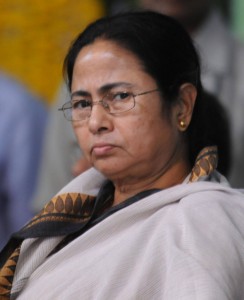These
are the ‘genuine’ fears expressed by Seemandhra people and their leaders in
Samaikyandhra agitations.
All
Seemandhras would lose their jobs instantly
All
Seemandhras whether they are living in Telangana or in Seemandhra will
instantly lose their jobs with creation of Telangana. One needs to
understand why. Most Seemandhras are currently employed only in Telangana
and that too only in government sector, taking up jobs meant for
Telanganas. They will lose these jobs immediately. In
addition, Seemandhras will lose their jobs within Seemandhra for unknown
reasons, but known explicably to Samaikyandhra activists. Seemandhra teachers
will lose their jobs, because all Seemandhra students will stop going to school
due to the heart-break caused by the murder of their beloved Telugu Talli.
Bankers in Seemandhra will lose their jobs because banks would become empty
after spending the money on Samaikyandhra agitations. All lawyers in
Seemandhra will have no cases to fight because currently most of them are
engaged in fighting against Telangana activists.












